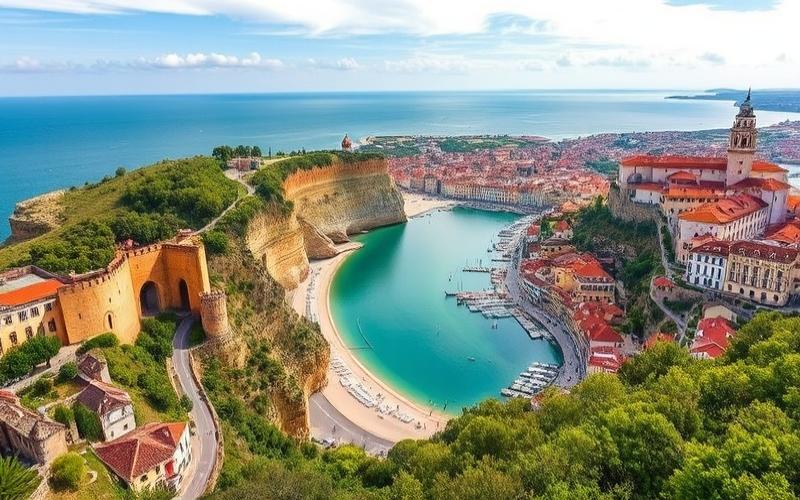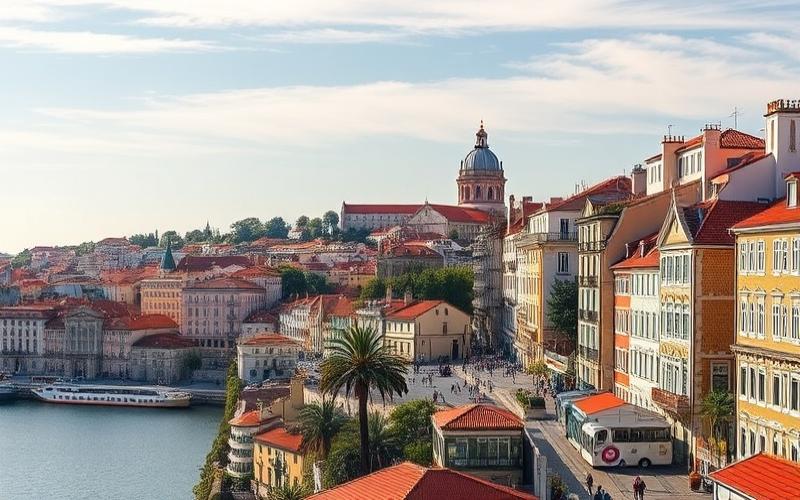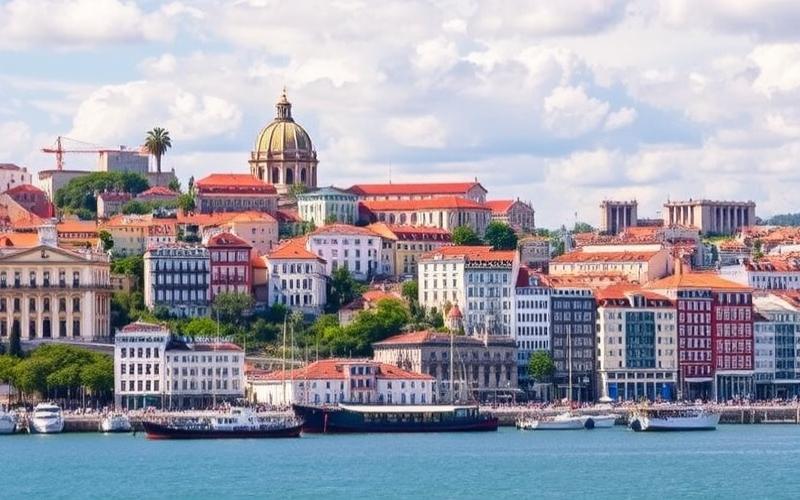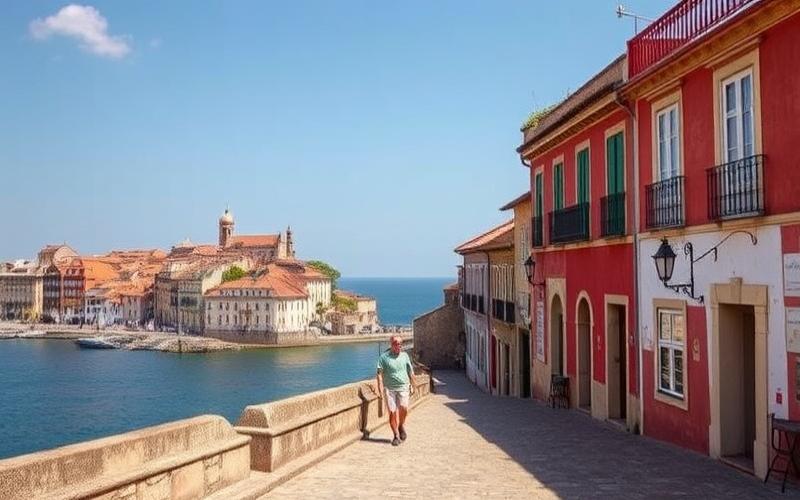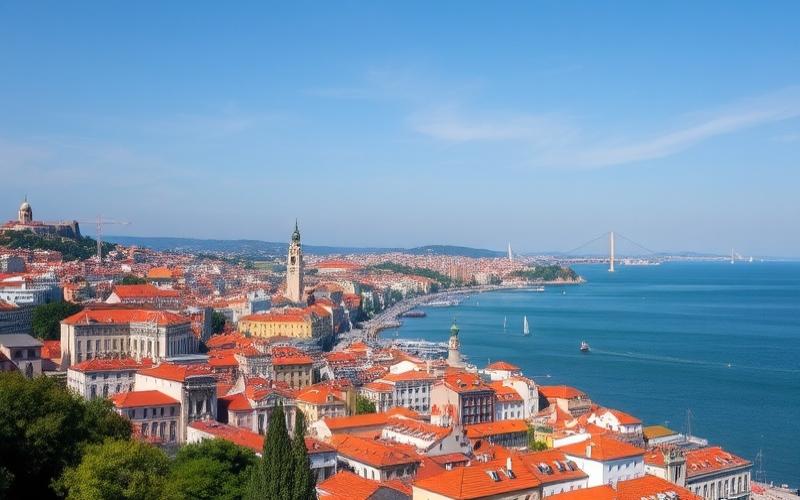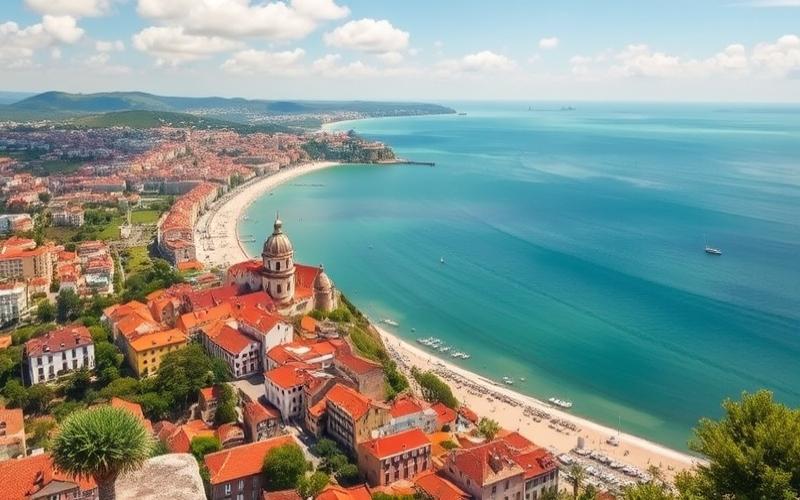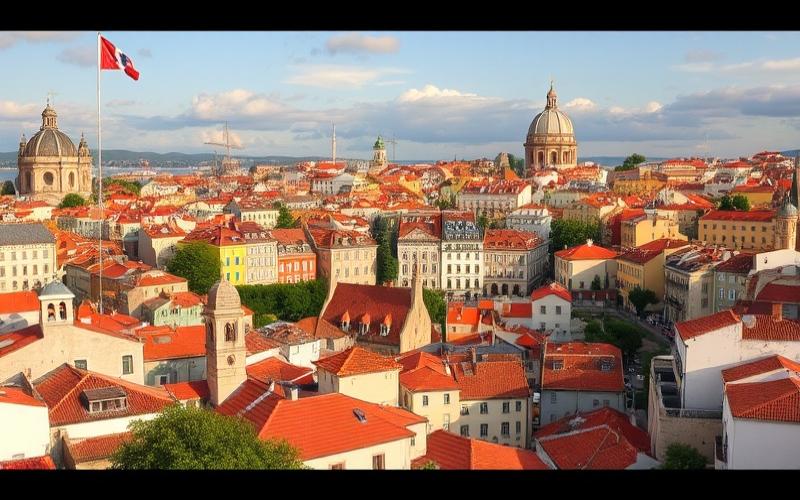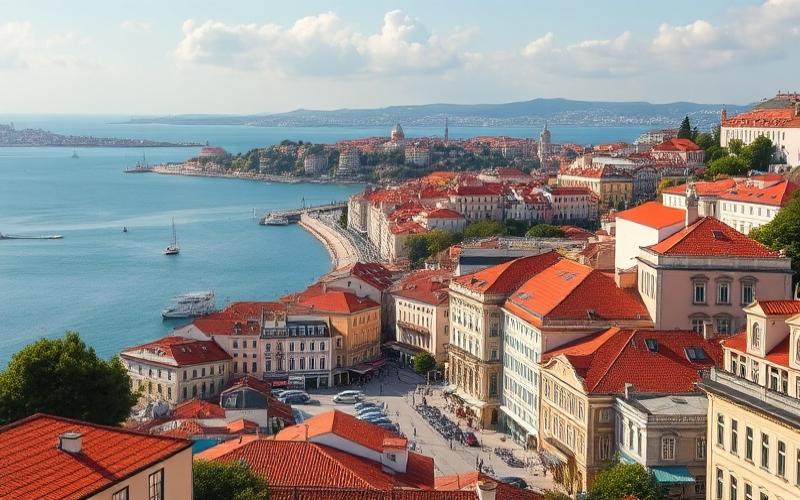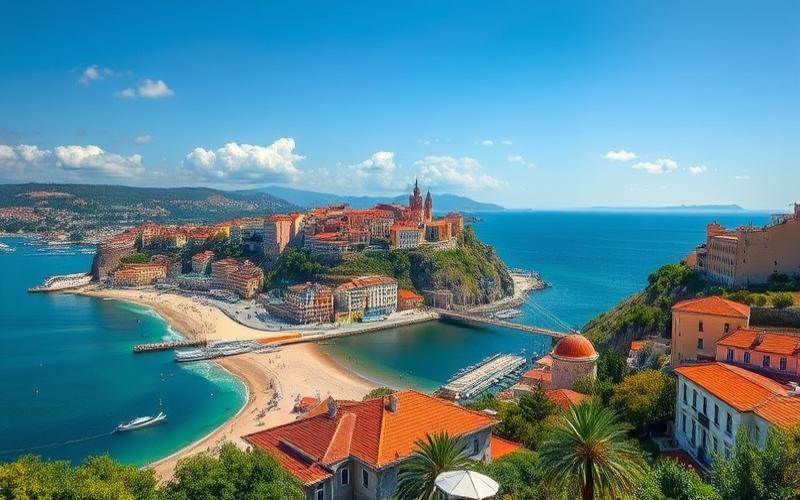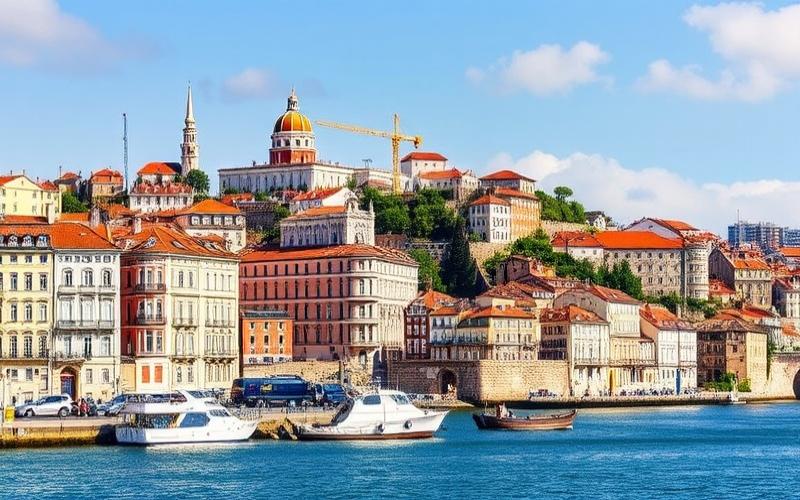
 Published on and written by Cyril Jarnias
Published on and written by Cyril Jarnias
Portugal is attracting more and more expats drawn by its quality of life, pleasant climate, and affordable cost of living. However, settling in this Mediterranean country requires following certain essential administrative procedures. Here is a detailed guide to help you navigate the complexities of Portuguese bureaucracy and ensure a smooth relocation.
Visa for Portugal: Your Key to a New Life
The first crucial step to settling in Portugal is obtaining a visa suited to your situation. The type of visa you’ll need depends on the length of your stay and your planned activities in the country.
For short stays (up to 90 days), nationals of the European Union, European Economic Area, and Switzerland do not need a visa. Citizens of other countries should check if they are subject to the Schengen visa requirement.
For long-term stays (more than 90 days), several options are available to you:
- Student Visa: for pursuing higher education in Portugal
- Work Visa: if you have a job offer from a Portuguese company
- Retirement Visa: for individuals wishing to retire in Portugal
- Entrepreneur Visa: to create or invest in a business in Portugal
- D7 Visa: for individuals with sufficient passive income
To obtain any of these visas, you will need to prepare an application typically including:
- A valid passport
- ID photos
- Proof of financial resources
- Health insurance
- A clean criminal record
- Specific documents according to the visa type (employment contract, university enrollment, etc.)
The application must be submitted to the Portuguese consulate in your country of residence. Processing time can range from a few weeks to several months, so it is recommended to start this process early.
Good to know:
Portugal recently introduced a digital visa for remote workers, making it easier for “digital nomads” to settle in the country.
The Quest for the Ideal Home: Finding Your Place in Portugal
Once you have your visa, finding housing becomes your priority. The Portuguese real estate market is dynamic, but increasing demand in major cities like Lisbon or Porto has led to rising prices in recent years.
To find your home, several options are available to you:
- Specialized websites like Idealista, Imovirtual, or OLX
- Local real estate agencies
- Facebook groups dedicated to property rental and sales
- Word of mouth within the expat community
During your search, keep in mind that the Portuguese rental market is regulated. Leases are typically for a minimum duration of one year, with automatic renewal. A security deposit equivalent to one or two months’ rent is often required.
To rent a property, you will need the following documents:
- A copy of your passport or ID card
- Your Portuguese tax identification number (NIF)
- Proof of income (pay stubs, bank statements)
- Proof of home insurance
Don’t hesitate to visit several properties before making a decision and thoroughly check the condition of the home before signing the lease agreement.
Good to know:
In some urban areas, there are affordable housing units (Renda Acessível) intended for middle-income individuals. Check with the city hall of your place of residence to learn about eligibility conditions.
Residence Permit Renewal: Making Your Life in Portugal Permanent
After your initial settlement, you will need to renew your residence permit to continue living legally in Portugal. This process is crucial and must be planned ahead to avoid any administrative issues.
The renewal process varies depending on your situation:
- For EU/EEA/Swiss citizens: You must apply for a registration certificate at the city hall of your place of residence within 30 days after the first 3 months of your arrival. This certificate is valid for 5 years.
- For non-EU nationals: You must apply for a temporary residence permit with the Foreigners and Borders Service (SEF) before your initial visa expires. This permit is typically valid for 2 years and renewable.
For renewal, you will need to provide:
- Your valid passport
- Proof of residence in Portugal (lease agreement, utility bills)
- Proof of financial resources
- Valid health insurance
- Specific documents according to your status (employment contract, university enrollment, etc.)
It is recommended to begin the renewal process at least 30 days before your current residence permit expires.
Good to know:
After 5 years of legal and continuous residence in Portugal, you can apply for a permanent residence permit, valid for 10 years and renewable.
Essential Portuguese Paperwork: Procedures Not to Overlook
Beyond the visa and housing, several administrative procedures are essential to fully integrate into Portuguese society.
1. Obtain a Tax Identification Number (NIF)
The NIF is essential for many procedures in Portugal (opening a bank account, signing an employment contract, renting a home). You can obtain it from the tax authorities (Finanças) or online via the Finanças portal.
2. Register with Social Security
If you work in Portugal, you must register with Social Security to benefit from healthcare coverage and social benefits. This procedure is done with the Instituto da Segurança Social.
3. Open a Bank Account
Having a local bank account will facilitate your daily transactions. Most Portuguese banks offer services in English for expats.
4. Exchange Your Driver’s License
If you hold a foreign driver’s license, you must exchange it for a Portuguese license within 60 days of obtaining your residence.
5. Register to Vote
Foreign residents can participate in local elections after a certain period of residence. Check with your city hall to learn about registration conditions.
Good to know:
Portugal has set up a one-stop shop for immigrants (Balcão Único do Imigrante) in several cities, bringing together different administrative services to facilitate your procedures.
Expat Rights and Duties: What Portuguese Law Says
Portugal is known for its warm welcome towards foreigners, but it is important to know your rights and obligations as an expat.
Your main rights:
- Equal treatment with Portuguese citizens regarding employment, housing, and access to public services
- Access to the public healthcare system (after registering with Social Security)
- Right to education for your children in public schools
- Protection against all forms of discrimination
Your main obligations:
- Respect Portuguese laws and customs
- Declare your income and pay your taxes in Portugal if you are a tax resident
- Keep your residence permit up to date
- Inform the authorities of any change of address or personal situation
It is important to note that Portugal has implemented measures to combat illegal immigration. Failure to comply with residence rules can result in penalties, ranging from fines to expulsion from the territory.
Good to know:
Portugal offers the possibility of obtaining Portuguese nationality after 5 years of legal residence, under certain conditions including proficiency in the Portuguese language and no criminal record.
Moving to Portugal represents an exciting adventure, but one that requires patience and diligence in your administrative procedures. By following this guide and staying informed about regulatory changes, you will lay a solid foundation for your new Lusitanian life. Remember that many resources are available to assist you, including through expat associations and the consular services of your home country.
Disclaimer: The information provided on this website is for informational purposes only and does not constitute financial, legal, or professional advice. We encourage you to consult qualified experts before making any investment, real estate, or expatriation decisions. Although we strive to maintain up-to-date and accurate information, we do not guarantee the completeness, accuracy, or timeliness of the proposed content. As investment and expatriation involve risks, we disclaim any liability for potential losses or damages arising from the use of this site. Your use of this site confirms your acceptance of these terms and your understanding of the associated risks.



